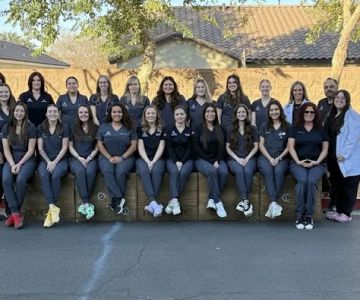What Subjects Are Needed for Veterinary Nursing?
- 1. Overview of Veterinary Nursing
- 2. Core Subjects in Veterinary Nursing Programs
- 3. Practical Skills Required for Veterinary Nurses
- 4. Additional Qualifications and Certifications
- 5. Career Pathways for Veterinary Nurses
- 6. Real-World Examples and Case Studies
1. Overview of Veterinary Nursing
Veterinary nursing is a highly specialized field that requires a blend of medical knowledge, compassion, and practical skills. Individuals interested in becoming veterinary nurses must be well-prepared to manage various medical tasks, work closely with animals, and provide high-quality care. To enter this profession, it’s crucial to understand what subjects are needed for veterinary nursing, as these subjects form the foundation for the skills and knowledge required to succeed in this rewarding career.
In this article, we will explore the key subjects required for a career in veterinary nursing. By understanding these core subjects and the role of veterinary nurses, you can determine if this career path aligns with your interests and skills. Whether you’re considering pursuing a veterinary nursing program or just curious about what it entails, this guide will provide essential insights into the educational requirements for becoming a veterinary nurse.
2. Core Subjects in Veterinary Nursing Programs
The educational path for veterinary nurses typically involves completing a degree or diploma in veterinary nursing, which includes a range of core subjects. These subjects are designed to equip students with the knowledge and skills necessary to assist veterinarians in providing care to animals. Some of the key subjects required for veterinary nursing include:
- Animal Anatomy and Physiology: Understanding the structure and function of different animals is vital for providing effective care. Veterinary nurses must be familiar with the anatomy of common domestic animals as well as exotic species.
- Veterinary Medical Procedures: Veterinary nurses need to understand medical procedures, including surgical preparation, anesthesia administration, and post-operative care. This subject focuses on the practical skills required to support veterinary procedures.
- Pharmacology and Therapeutics: A knowledge of medications, their effects on animals, and how to administer them correctly is essential. Veterinary nurses must be proficient in understanding different drug treatments for various animal conditions.
- Animal Nutrition: Providing proper nutrition is a fundamental aspect of animal care. Veterinary nurses learn about the dietary needs of various animals and how to create feeding plans tailored to individual pets or patients.
- Veterinary Ethics and Law: Veterinary nurses must also be well-versed in the legal and ethical aspects of veterinary care, including issues related to animal welfare, patient confidentiality, and professional conduct.
3. Practical Skills Required for Veterinary Nurses
In addition to theoretical knowledge, veterinary nursing requires practical skills that can only be developed through hands-on experience. Many veterinary nursing programs include clinical placements where students work in real veterinary settings, gaining experience in the following areas:
- Animal Handling and Restraint: Effective animal handling is critical for safety, both for the animals and the veterinary staff. Students learn how to approach, handle, and restrain animals, especially those that may be anxious or aggressive.
- Laboratory Techniques: Veterinary nurses often assist with diagnostic tests, such as blood draws, urinalysis, and fecal exams. Proficiency in laboratory techniques is crucial for supporting the veterinary team in diagnosing and treating animals.
- Emergency Care: Veterinary nurses must be prepared to handle emergencies, from trauma care to stabilizing critical patients. This requires quick thinking, precise actions, and the ability to perform under pressure.
- Communication Skills: Veterinary nurses regularly interact with pet owners, explaining treatment plans, offering advice, and answering questions. Strong communication skills are essential for providing excellent customer service and ensuring animals receive proper care.
4. Additional Qualifications and Certifications
While completing a veterinary nursing program is the primary requirement for entering the field, additional qualifications can enhance your career prospects and improve your skills. Some veterinary nurses choose to specialize in areas such as anesthesia, emergency care, or oncology. These specializations may require further study and certification. Additionally, certification from professional bodies like the American Veterinary Medical Association (AVMA) or the National Association of Veterinary Technicians in America (NAVTA) can demonstrate your expertise and commitment to the field.
5. Career Pathways for Veterinary Nurses
After completing their education and certification, veterinary nurses can pursue a variety of career pathways. Some may work in private veterinary clinics, while others might find positions in animal shelters, zoos, or research institutions. Veterinary nurses can also specialize in specific fields, such as:
- Emergency and Critical Care: Veterinary nurses in emergency care must be prepared for fast-paced, high-pressure environments, handling urgent medical cases.
- Animal Rehabilitation: Veterinary nurses specializing in rehabilitation help animals recover from surgery, injury, or illness through physical therapy and other therapeutic treatments.
- Veterinary Research: Some veterinary nurses work in research settings, contributing to scientific studies on animal health, vaccines, and treatments.
- Teaching and Training: Experienced veterinary nurses may become instructors, teaching future generations of veterinary professionals.
6. Real-World Examples and Case Studies
To understand the impact of veterinary nursing, let's consider a real-world example. Sarah, a veterinary nurse from California, was recently involved in an emergency case where a dog was brought in with severe trauma after being hit by a car. Through her skills in animal handling, emergency care, and anesthesia, Sarah helped stabilize the dog, enabling the veterinarian to perform life-saving surgery. Her ability to stay calm under pressure and use her knowledge of veterinary medical procedures made all the difference in this critical situation.
Real-life stories like Sarah’s highlight the importance of the subjects and skills learned in veterinary nursing programs. These stories remind us that the knowledge gained through these programs not only prepares individuals for the day-to-day responsibilities of veterinary nurses but also empowers them to make a significant impact in the lives of animals and their owners.
SEO Title: What Subjects Are Needed for Veterinary Nursing? Essential Education for Future Veterinary Nurses
SEO Keywords: veterinary nursing, veterinary nurse subjects, veterinary education, animal care, veterinary nursing program, veterinary qualifications, animal health
SEO Description: Curious about what subjects are needed for veterinary nursing? This guide explains the core subjects, practical skills, and qualifications necessary to pursue a career in veterinary nursing. Learn about the subjects, real-world examples, and career pathways in this rewarding field.











